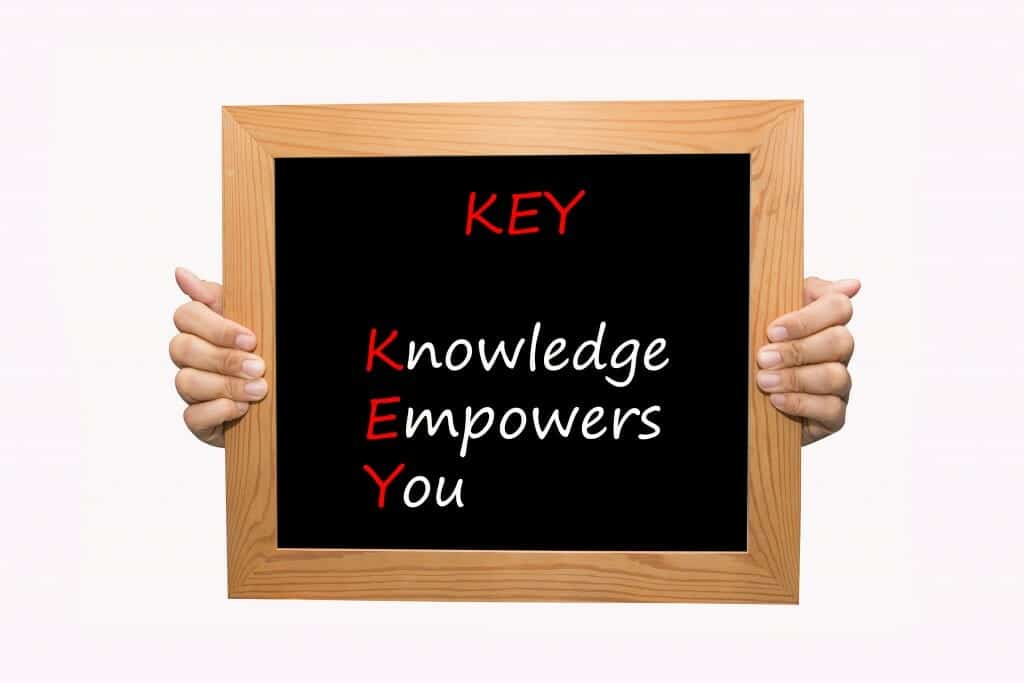
So many people believe that they understand the truth about divorce before they decide to move forward. Unfortunately, most of them don’t.
Or, rather, what they know is only part of the truth.
They know that a divorce will end their marriage. That part is fairly obvious.
What’s NOT obvious is that the WAY you go through your divorce will affect your family, your finances, and your future for years. In short, HOW you get divorced matters.
That’s the part that most people overlook.
A lot of people start their divorce believing that they can get through it amicably and without spending too much money. Those same people, however, usually also believe that their divorce will be “fair” – i.e. that they will get what they want.
What they don’t count on is that their spouse may have a very different idea about what’s “fair” than they do. Or their spouse may not want a divorce at all. Or maybe their spouse will get angry or scared and “lawyer up” right away.
If any of those things happens, the divorce that they thought was going to be amicable (i.e. “easy and cheap”) gets way more complicated and expensive.
What’s the answer, then? How can you put yourself on track (and keep yourself on track!) to get a divorce that doesn’t end in bankruptcy or the “War of the Roses?”
It starts by understanding the truth about divorce.

What’s the Truth About Divorce?
The first “truth” about divorce is that everyone has their own ideas about what that “truth” is!
But much of what people tout as being “the truth” really boils down to their opinion.
For example, some people see divorce as a “cop out.” They believe that divorce is wrong, bad, and generally unacceptable.
Other people think divorce is unfortunate but necessary. Still others think divorce can genuinely be a good thing.
Regardless of where you fall on that spectrum, all of those ideas about divorce are simply beliefs. They’re true to you if you believe them. But they’re not true if you don’t.
Something that’s really true should be verifiable. It should be based on fact, not opinion.
With that in mind, here are some facts about divorce that you need to know if you want to get through your divorce reasonably amicably and more-or-less affordably.

9 Truths Every Divorcing Person Needs to Know
1. Knowledge is power.
If you don’t understand how the divorce process works BEFORE you get mired in the middle of it, you’re going to make a ton of rookie mistakes that cost you time and money.
You will drag your divorce out by fighting for things you may not be entitled to get. You will let your emotions get in the way of your judgment. Most of all, you will be frustrated when things don’t go the way you expect them to go.
If you truly want to do well in your divorce you’ve got to understand how the divorce system works – even if you have an attorney!
Why? Two reasons:
- No attorney in the world will care more about your divorce or your life than you do, and #2…
2. Your lawyer isn’t going to tell you everything you need to know about divorce.
Lawyers are not teachers.
Your lawyer’s job is to get you divorced AND to get you the best deal possible in your divorce. It’s your lawyer’s job to negotiate for you, to protect your financial interests, and to represent you in court, mediation, or arbitration. It’s also your lawyer’s job to make sure that your divorce papers are written properly.
It’s NOT your lawyer’s job to explain every aspect of the divorce process to you step by step before you go through it. A lawyer will explain your legal rights and responsibilities. But the vast majority of divorce is NOT legal.
That’s the problem.
What’s more, lawyers suffer from “the curse of knowledge.” They are so well-versed in the legal system that they don’t even think about explaining things to their clients. They assume the way the system works is obvious to you because it’s obvious to them.
As a result, you don’t always get the information you need, when you need it, or in a way that you can understand it. So you don’t know what to expect.
When you don’t know what to expect, you can’t prepare for it. When you’re not prepared, you don’t do as well. You’re also much more likely to second-guess yourself or make rash decisions when you have to make them at the last minute.

3. Your divorce WILL take longer than you expect.
Divorce is a marathon, not a sprint.
While no one who is starting a divorce wants to believe that, it’s an almost universal truth about divorce.
No matter how amicable you might want your divorce to be, you are not going to make it from “I want a divorce,” to holding your divorce judgment in your hand in two weeks … or two months. You may not even make to the finish line in two years.
Divorce is a process. It takes time.
It takes time to make it through the court system. It takes time to sort through and divide your finances. Most of all, it takes time to re-configure your family and time for everyone to heal.
Pressuring yourself, and your spouse, to go through the process at lightning speed doesn’t work. The more you push your spouse to move quickly, the more your spouse is likely to dig in his/her heels and drag things out.
What’s more, sometimes giving everyone the time they need to adjust to a new family and a new life actually works in your favor. Once people have accepted their new reality, they are less likely to fight it. So, sometimes, slowing your divorce down a bit helps make it less conflictual.
4. If you are a parent the best thing you can do for your kids is to get along with your ex.
Study after study shows that what hurts children of divorce the most is their parents’ conflict.
If you and your ex are at each others’ throats during your divorce, your kids will suffer. If you talk badly about your ex to your kids, your kids will suffer.
Even if you try to hide your conflict from your kids, children are not stupid. They see, hear, feel, and internalize much more than you realize.
It doesn’t matter how many horrible things your ex has done to you. Unless s/he has abused your kids, they will be spending time with your ex in the future. If, when they do that, they feel like they’re torn between you and your ex, they will suffer.
If you care about your kids, you’re going to have to find a way to get along with their other parent, at least until they’re eighteen years old and out of high school. Knowing that, the sooner you start building a civil relationship with your ex, the better off everyone will be.

5. If you want an amicable divorce you have to TALK to your spouse.
The quickest, cheapest, and most effective way to settle your divorce is to do it directly with your spouse. If you can’t talk directly to your spouse without causing explosions, then you can negotiate using a mediator. But one way or another, if you want a truly amicable divorce, you are going to have to negotiate with your spouse.
That means that, one way or another, you’re going to have to find a way to talk to your spouse.
Unfortunately, many lawyers counsel their clients not to talk to their spouses during a divorce. There are sound reasons for following that advice if your spouse is abusive or dangerous. It makes sense NOT to talk to your spouse if talking to your spouse always ends in an argument and makes everything between you worse.
But if your spouse is so argumentative or abusive that you can only talk through lawyers, you’re probably never going to have an amicable divorce. (Sorry!)
You may still be able to settle out of court. But there’s a big difference between just settling your divorce and settling it amicably.
The bottom line is that you can’t minimize conflict without conversation.
If you and your spouse can’t have a productive, civilized conversation about your divorce yourselves, you’re going to have to talk through your lawyers. Doing that is time-consuming, expensive, and usually not so amicable.
6. You are probably never going to be able to tell the judge your story.
When you’re going through a divorce – especially if you feel you’ve been wronged in some way — it’s only natural for you to want to tell the judge your story.
You want the judge (and the rest of the world!) to understand that your spouse is a jerk! You want the judge to know how much you’ve suffered and to rule in your favor because of it.
The only problem is that that’s not the way that the courts work.
First of all, 90 – 95% of all divorce cases settle. When your case settles you don’t get a chance to tell the judge your story. Ever.
Even if you go to trial, there are strict rules about what kind of evidence can be presented. You only have a limited time to tell the judge the legally relevant facts. That means that you almost never get to tell the judge your story the way you want to tell it.
I don’t mean to be harsh. But if telling your story is important to you, find a good therapist and tell your story to him/her. That will ultimately be less frustrating and expensive than fighting to be able to tell the judge your story.

7. Divorce isn’t fair.
Very little about divorce is fair.
Yet, most people start their divorce believing that their spouse will be fair and that they only want what’s “fair.” They also believe that the judge and the court system will be fair. (… which, of course, they interpret to mean that the judge will side with them!)
The problem is that what’s “fair” depends on whose eyes you’re looking from.
What YOU think is fair is likely very different from what your spouse thinks is fair. What the judge thinks is fair, or what the law says is fair, may be different from what either you or your spouse thinks is fair!
What’s more, a lot of what happens in divorce just isn’t fair! It’s not fair by anyone’s standards!
So using “fair” as the measuring stick of what you want to happen in your divorce will only leave you feeling frustrated and angry.
8. Your divorce isn’t necessarily over the day you get divorced.
Divorce is a process. It’s not an event.
Sure, the day the judge signs your divorce papers, your marriage is legally over. But just because the legal end of your divorce is over, that doesn’t mean that every other part of your relationship with your ex will magically be over too.
Most of the time, people still need to separate a lot of their finances AFTER their divorce is over.
Retirement accounts are often divided after the divorce judgment has been entered. You may still have to sell or refinance your home after your divorce judgment has been entered. Or ongoing child support or spousal support payments may keep you and your spouse tied together financially for years after your divorce.
Your divorce also won’t change the fact that you and your ex will still be your children’s parents after your divorce.
If you share custody, you will have to continue to make parenting decisions together for your kids. You will continue to have to juggle scheduling for your kids. Even if your “kids” are adults, you will still have to see your ex at graduations, weddings, funerals, and other big events.
All of those financial ties, and the ties you share as parents, will keep you and your ex in contact with each other to some degree whether you want to stay in touch or not. That’s yet another reason why the WAY you get divorced matters so much.
Most of the time, when you fight all the way through your divorce, you continue to find reasons to fight long after your divorce is technically over.

9. What goes around comes around, so don’t be a jerk.
Some people call it karma. Others call it justice, God’s law, natural law, or the law of the Universe. Whatever you call it, the bottom line is this: what you do comes back to you.
I’ve seen it happen over and over again.
One party in a divorce tries to game the system, or cheat their spouse. Then, by a “lucky coincidence” or a twist of fate, their spouse discovers the lie. When that happens, the spouse who tried to hide money or cheat their spouse often ends up paying much more to his/her ex than what s/he would have had to pay if s/he had just been honest.
Of course, sometimes the spouse who cheated in their divorce doesn’t get caught. Sometimes that spouse gets away with cheating … or at least that’s the way it looks.
But just because you may not be close enough to your ex to have a front row seat when karma catches up with him/her, that doesn’t mean that karma doesn’t happen.
Perhaps one day your ex will get audited by the IRS and end up with a huge tax bill. Maybe s/he will get cheated by someone else. Or maybe some other ugly thing will happen to him/her.
What happens is not for you to decide. It’s not for you to cause, and it doesn’t matter whether you’re around to see it.
One way or another, what goes around comes around. That’s why taking the high road in your divorce will always be your best choice.

What Good Does Knowing the Truth About Divorce Do For You?
When your marriage is falling apart, you may not want to know the truth about divorce. You may be tempted to just rush into the process and try to get it over with as fast as you can.
That’s what most people do.
No one wants to wallow around in conflict and pain any longer than s/he has to.
But the more you understand about divorce, the better equipped you will be to get through the process in a healthy way. The more you know the truth, the fewer illusions you will have, and the less frustrated you will be as you go through your divorce.
While it can be disheartening to discover that divorce doesn’t work the way you thought that it did (or the way that you thought that it SHOULD!), knowing the truth always gives you power. It enables you to make smarter decisions so that you’re much more likely to achieve a more favorable end.
As former U.S. President James Garfield once said,
“The truth will set you free … but first it will make you miserable.”
If you’re facing divorce, knowing the truth about what you’re about to live through still won’t make it easy or fun. But it could make it a little bit less painful.
BONUS TIP:
Another “truth” about divorce is that having a good divorce checklist can help you make sure you don’t miss anything in your divorce.


Hi, Karen. I’ve been looking at several websites to try and find more information about divorces. I’m going through a divorce currently, and I’m struggling to find someone whose knowledge could help me. All I want is to keep my children, but my wife is pushing to have full custody.
Hopefully you can find what you need here. If not, feel free to contact me directly.
My nephew married a woman who had a dependent child from another man. He had two dependent children from another woman. Neither legally adopted the other’s children. They both now want to get a divorce. He and his current wife had agreed to get a simple divorce by completing the papers online. Her father found out that they had agreed to do that and instructed her not to do that. Apparently, he expects his adult daughter to get alimony (for a child that isn’t my nephews). Also, her dad seems to think that she should get a share of anything that my nephew owned when he married his adult daughter. The couple married when my nephew was taking care of his father, and they lived in his home and paid no rent. Soon, my nephew’s new wife wanted to move out and go live with her sister in another town in Utah. Since then the marriage has been on the rocks and both want a divorce, but her dad (and probably she) wants something from my nephew. I don’t think he owes her anything. Do you have any suggestions?
I hate to be the bearer of bad news, but it sounds like your nephew has a problem. He needs to consult with a good divorce lawyer in your area as soon as possible. That doesn’t mean he has to start a war. He just needs to know what he is facing and get some ideas for how to handle it. He needs to know his legal rights and responsibilities so that he can be prepared for whatever happens.
Here are a few general things to understand as well. Alimony is support for a spouse. Child support is support for a child. Even though they don’t have any children together, that has nothing to do with whether your nephew’s wife can get alimony. That will depend upon the law in your state and the facts and circumstances of his case. (Again, he needs to talk to a Utah lawyer about that.)
Finally, I don’t mean to be disrespectful, but what you, or even he, thinks he “owes” his soon to be ex wife is not the right question. Whether he has to give her a portion of his property or pay to support her for a period of time depends on the law in your state and the specific facts of his case. It also doesn’t matter if it is your nephew’s wife or her father that is driving her behavior. If she decides to try to get money from your nephew, her motivation doesn’t particularly matter.
Your nephew may have had the best intentions in wanting to resolve this case simply and easily. But he can not control his soon to be ex wife, her behavior, or her desires. At this point, he really needs some good legal advice. Once he has the knowledge he needs, he may be able to use it to avoid getting sucked into a huge battle. But chances are he is not going to be able to end this marriage as cheaply or as easily as he may have thought.
Best.
Karen
Really love the article! It’s important for clients to know what a divorce attorney does, how to choose the best one, and the things that they hide from you.
Thanks!